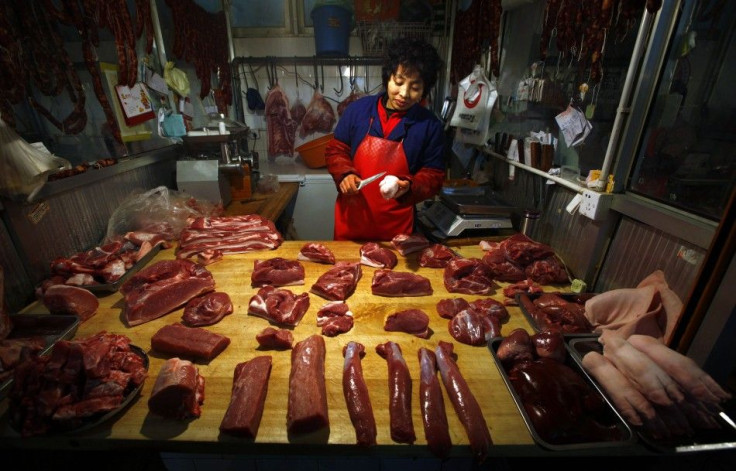Sausage and Cancer: Maybe Jews, Hindus and Muslims Are Right
ANALYSIS

A recent study indicated that people who eat a single serving of red meat per day developed an increased risk of pancreatic cancer.
As reported in the British Journal of Cancer, Swedish researchers discovered that people who consume four ounces of processed meat daily (including such delicacies as sausage and four slices of bacon) had a 19 percent increased chance of contracting pancreatic cancer.
Right now, your lifetime risk of getting pancreatic cancer is 1.4 percent, Dr. Richard Besser told ABC News. If you have a serving of processed meat per day, your risk would go up to 1.7 percent -- still very small.
Pancreatic cancer is relatively rare, affecting only one of 65 people, according to the National Cancer Institute.
Defenders of the white meat would point out that eating pork is not the problem at all -- rather, the true culprits are the nitrites and nitrates used in the proccessing of meats (all types of meat). Indeed, processed meats have also been connected to bladder and colon cancers.
Nonethless, the eating of pork has long been banned by at least three of the world’s major religions, Judaism, Islam and Hinduism.
The prohibition on eating pigs stretches back to antiquity and, of course, it was not implemented due to cancer fears.
In the Old Testament of the Bible, the Book of Leviticus states: “And the swine, though he divide the hoof, and be cloven-footed, yet he cheweth not the cud; he [is] unclean to you. Of their flesh shall ye not eat, and their carcass shall ye not touch; they [are] unclean to you.”
Similarly, Deuteronomy advises: “And the swine, because it divideth the hoof, yet cheweth not the cud, it [is] unclean unto you: ye shall not eat of their flesh, nor touch their dead carcass.”
In the Holy Quran, it is written: “He has only forbidden you dead meat, and blood, and the flesh of swine, and any (food) over which the name of other than Allah has been invoked.”
With respect to Hinduism, eating pig is not specifically forbidden -- rather, all flesh and meat-eating is considered taboo. Culturally, pork was never a popular (or cheap) food alternative in India. Observant Hindus shun pork, as much as they avoid beef, alcohol or tobacco. While cows are considered sacred, pigs are generally considered unclean (as they are by Muslims and also Buddhists).
Interestingly, pork is also forbidden (or considered taboo) by such diverse groups as Seventh-Day Adventists, the Ethiopian Orthodox Church and even some Scottish Highlanders.
However, eating pork is extremely popular in China – even though some ancient Chinese texts discouraged the practice. The Confucian Book of Rites from 3,000 years ago said: A gentleman does not eat the flesh of pigs and dogs.
According to a report in the Los Angeles Times, the average Chinese person eats about 100 pounds of pork per year (double the rate as Americans).
When someone says they're eating 'meat' in China, they mean they're eating pork, Feng Yonghui, an industry analyst, told the paper.
Most people can't live without it.
China is also the biggest pork producer on the planet, with 460-million pigs (half the global total).
According to the China Association of Science and Technology (CAST), the risk of pancreatic cancer has been increasing in China in recent years.
“For example in Shanghai, in 2000, the incidence rate reached 10.0 per 100,000 persons, an increase of 1.5 times higher than 20 years ago,” CAST stated.
“In 2008, 1,800 new cases were reported among the regular inhabitants in Shanghai city proper. Since 2010, the rate has risen to 11.0 per 100,000 persons”
© Copyright IBTimes 2025. All rights reserved.





















